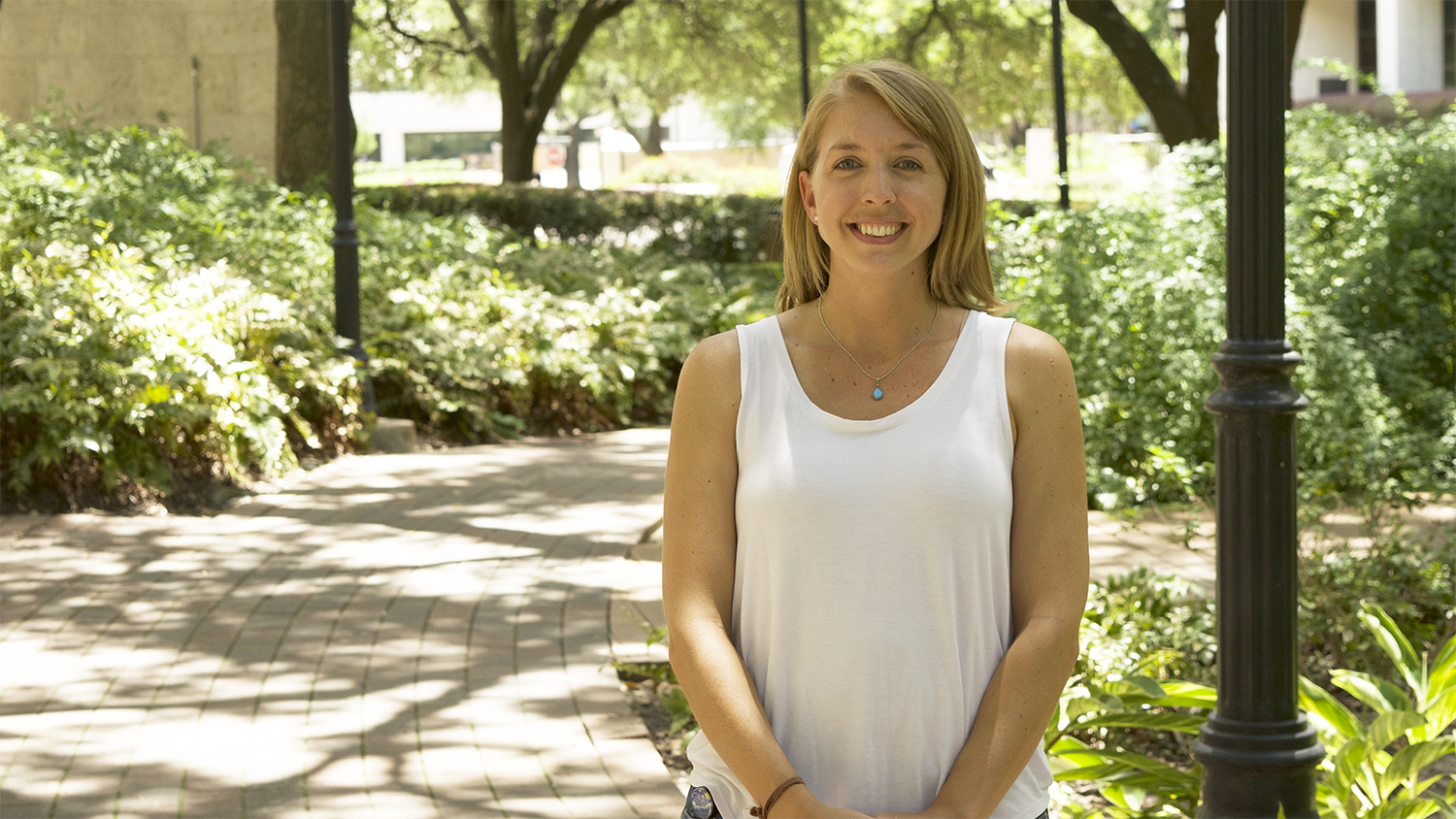Melissa Franch ’12: ‘Skills I Developed During Teaching Have Transferred Naturally to the Research Environment and Continue to Help Me Become a Successful Scientist’

Melissa Franch ’12 has an older brother with severe, nonverbal autism. From a young age, she wondered what caused him to exhibit various behaviors and how her family could best help him. The more she learned in biology classes, the more curious she became about the causes of autism and ways to improve the lives of individuals with the disorder.
That interest and curiosity led Franch first to the NC State College of Education to complete a bachelor’s in science education and eventually to the University of Texas Health Science Center at Houston, where she is a doctoral student in neuroscience and conducting research on the neural correlates of social behavior such as cooperation.
[spotlight-box label=”” heading=”About Melissa Franch” cta=”” url=””]
Role: Neuroscience Ph.D. student at the University of Texas Health Science Center at Houston
Education: Bachelor of Science in Science Education, NC State College of Education; Bachelor of Science in Biological Sciences, NC State University
What She Enjoys Most About Science: “The scientific inquiry and investigation process is truly cathartic for me. There is something wonderful and satisfying about identifying a problem, asking questions and trying to solve it.”
Why She Chose the NC State College of Education: “I wanted to be a part of the Students Advocating for Youth (SAY) Village because of the youth mentoring responsibilities and because I knew I was joining a community of other individuals who are passionate about service through education. I also really enjoyed the campus atmosphere surrounding the College of Education.”
Why She Chose Education: “I chose education as my career because one of my core values is service. I think growing up with a brother who has a disability inspired me to empower others, and I decided to do that through education and science. While teaching is very rewarding in the moment as you can see students learn within a lesson, your positive influence as a teacher can lead to future changes in students’ lives that you will never know about.”
[/spotlight-box]
Specifically, she records neural activity from animals as they cooperate for a reward. Through this research, she seeks to understand how the brain processes socially relevant visual cues from the environment, like the body language or actions of the partner, to use in social decision-making, such as forming the choice to cooperate.
“This project will improve our understanding of social cognition, promoting the development of better therapeutics that can improve the lives of individuals suffering from social dysfunction,” Franch said.
Her research was showcased last fall at the Society of Neuroscience annual meeting in Chicago. Having her research featured confirmed to Franch that the problems she wants to solve and the questions she sees as important are also acknowledged by the rest of the neuroscience community.
“It really motivates me to continue on this career path and confirms that my ideas and research can make a positive impact,” she said.
Franch developed an interest in science at a young age. Her father, an environmental chemist, encouraged her to participate in science events when she was a child and teen. While in high school, for example, she attended a Sally Ride Science event for women in science where they made their own DNA models and lip balm. Through such experiences, Franch’s love for science grew.
“I am so grateful to my dad for encouraging me to step out of my comfort zone and pursue my talents and interests,” she says.
Her high school biology teacher, Mr. Lewis, and his exemplary teaching inspired her to initially pursue a career in science education. She chose to attend the NC State College of Education — North Carolina’s largest producer of STEM educators — because she wanted to be surrounded by other individuals passionate about service through education.
She was also drawn to the mentoring opportunities available through the Students Advocating for Youth (SAY) Village and the field experiences she would receive.
“I really enjoyed that we visited and worked in real high school classrooms very often and from the beginning of our college career,” said Franch, who was a Burroughs Wellcome Foundation Scholarship recipient while an NC State student.
During her sophomore year, she observed and assisted “a proficient biology teacher at Wake Early College High School, which was an invaluable experience for me.”
That same year, she also completed an internship with the U.S. Department of Energy Pre-Service Teachers program. Through that experience, she discovered a desire to contribute her skills and serve others through both education and research on a daily basis, which led her to add a second major in biological sciences and decide to teach high school biology for a few years before pursuing a Ph.D. in neuroscience.
“And this is exactly what I have done,” Franch said.
She taught biology for three years at Millbrook Magnet High School in Raleigh, North Carolina, before enrolling in her Ph.D. program.
“I hope everyone can teach at some point in their life, as I think the act of teaching instills a skillset and values in you that improve every aspect of yourself,” she said. “Teaching has helped me become the best person I can be, and the skills of leadership, communication, collaboration and persistent work ethic that I developed during teaching have transferred naturally to the research environment and continue to help me become a successful scientist.”
When Franch finishes her Ph.D., she plans to complete a post-doc and remain in academia. She aspires to become a professor so she can teach science and conduct research on a daily basis.
“I enjoy knowing that the work I will complete during my career will be used to help people someday,” she said. “I really enjoy both research and education because the impact is greater than one can imagine.”
- Categories:


